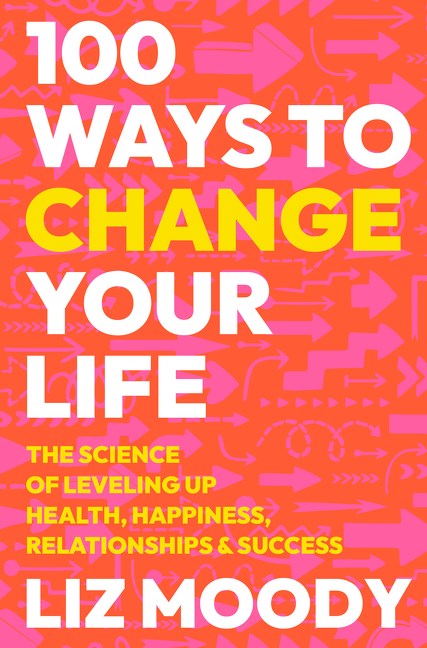An Excerpt from 100 Ways to Change Your Life
 Liz Moody, a seasoned journalist, has pulled from her extensive experience interviewing some of the world’s top doctors, scientists, and thinkers to present a clever, choose-your-own-adventure-style book that offers practical solutions to life’s most significant challenges.
Liz Moody, a seasoned journalist, has pulled from her extensive experience interviewing some of the world’s top doctors, scientists, and thinkers to present a clever, choose-your-own-adventure-style book that offers practical solutions to life’s most significant challenges.
In 100 Ways to Change Your Life, readers will find powerful yet easy-to-read tips on building habits that span several areas of life, including mental health, career, relationships, confidence, and physical health.
The following excerpt argues that fidgeting, often seen as a disruption, can help us focus and enter a creative state of mind.
◊◊◊◊◊
Gesture and fidget more.
Acclaimed science writer and The Extended Mind author Annie Murphy Paul thinks most of us are missing out on tapping into the true power of our minds. Her research focuses on moving beyond brain-based thinking and into the many other ways our outside-the- brain resources can literally help us get smarter.
As it turns out, gesturing is one of the ways our interaction with our bodies actually changes how we think. “Linguists think that gesture was probably our first language, before we even were able as a species to use spoken language to communicate, and we still communicate through gestures,” Paul said.
According to Paul, though, gesturing isn’t just about communicating with other people—it actually assists and enhances our own thinking as well. “There are amazing experiments that show that our gestures are a few milliseconds ahead of our verbal expressions and even our conscious thoughts in terms of what we’re about to say,” she explained. “We can actually read information off of our own gestures that will help us find the right words or locate the right concepts.”
Gesturing can also increase our capacity for memory recall. Numerous studies have found that gesturing when trying to recall a word or memory can bring something from that tip-of-the-tongue state to the more accessible part of the brain, and recently, research has shown that when people gesture while they’re encoding a memory, that memory is later more easily recalled. Speakers remember their speeches better if there are actions associated with the words; actors who use gesturing better recall their scripts; children who gesture while learning are more likely to retain what they learned than children who stay still.
To cheat the bodily process that’s already happening, you can allow and encourage gesturing, especially when you’re trying to enhance your thinking. “The more we gesture, the deeper our understanding of a concept will be. As workers, thinkers, and creators, we want to allow ourselves to gesture as much as possible,” shared Paul.
On the flip side, a lot of our mental resources are used up when we try to inhibit our urge to move (and this can be even more true for neurodiverse people). “We actually have to devote mental bandwidth just to keeping ourselves still,” Paul said, “whereas fidgeting is actually a very finely modulated way of adjusting our own arousal level. It might keep us awake during a boring meeting, or if we’re kind of playing with some kind of object on our desk, that might sort of put us in a more creative frame of mind. I would love to see us give ourselves more permission to fidget, to doodle, to gesture, and not feel like those things are somehow anti-intellectual. They’re actually enhancing our thinking.”
As a very small personal example, when I used to do my podcast intro and outro recordings, I’d feel silly for the gestures that my body naturally felt compelled to make. I remember once even sitting on my hands—I’d so internalized that gestures were a signal you sent to other people, and no one else was in the room with me, after all. Who was I trying to communicate with?
Since my interview with Paul, though, I’ve allowed myself to gesture wildly because, as she explained, it’s really a signal I’m sending to myself. And I’ve found that my thoughts flow more freely when my hands are waving around like I’m conducting an orchestra. Sentences come easier; words feel more graspable. Explore incorporating gestures when you talk. If you’re trying to memorize something, incorporate a gesture that goes with the words that you’re committing to memory. When you’re trying to recall something, move your hands and arms and see if it helps spark the memory. Also, try to become aware of when you’re limiting your gestures, whether it’s to adhere to some social norm or for any other reason—because, as Paul points out, you’re not simply limiting your movement, but the power of your mind as well.
Excerpted from 100 Ways to Change Your Life by Liz Moody and reprinted with permission from Harper Wave, an imprint of HarperCollins Publishers. Copyright © 2023



